drsancho@gmail.com
MY FAVORITE QUOTES
 AND APHORISMS
AND APHORISMS
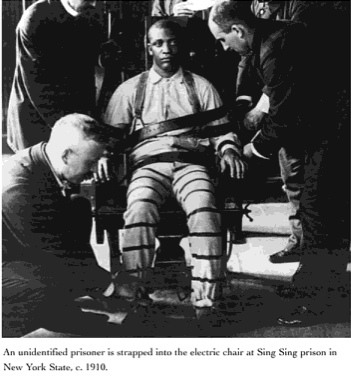


EVERY LIFE IS A TRAGEDY BUT WHEN ANALYZED IN DETAIL IT TAKES ON THE ASPECTS OF A
COMEDY. Schopenhauer
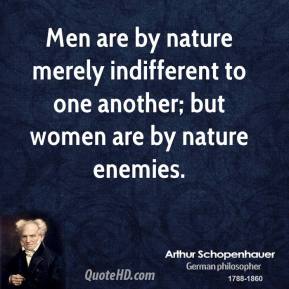

Hay aves que cruzan el pantano y no se manchan.
Mi plumaje es de esos. Salvador Santos Chocan

 "At times to be silent is to lie. You will win because you have enough brute force. But you will not convince. For to convince you to need to persuade. And in order to persuade you would need what you lack: Reason and Right." Unamuno in a confrontation with fascist General Milan-Astray at the University of Salamanca on October 12, 1936. Milan-Astray shouted in reply, "Death to intelligence! And long live Death!" whereupon he drove the elderly Unamuno out of the university at gunpoint. Writer and independent thinker, original mind and rector of the University of Salamanca, Unamuno consequently suffered a heart attack and was dead within a week.
"At times to be silent is to lie. You will win because you have enough brute force. But you will not convince. For to convince you to need to persuade. And in order to persuade you would need what you lack: Reason and Right." Unamuno in a confrontation with fascist General Milan-Astray at the University of Salamanca on October 12, 1936. Milan-Astray shouted in reply, "Death to intelligence! And long live Death!" whereupon he drove the elderly Unamuno out of the university at gunpoint. Writer and independent thinker, original mind and rector of the University of Salamanca, Unamuno consequently suffered a heart attack and was dead within a week.

 EN EL TIEMPO DE GUERRA CUALQUIER HOYO ES TRINCHERA.
EN EL TIEMPO DE GUERRA CUALQUIER HOYO ES TRINCHERA.

 LIFE'S PRINCIPLE AXIOM IS THAT YOUR INSTINCT IS TO PERPETUATE YOURSELF----TO BE. PERPETUATION INCLUDES IN ADDITION TO YOUR FINITE LIFE THE EXTENSION OF YOUR MEMORY AND INFLUENCE AFTER YOUR DEATH. A HERO IS PERPETUATED BY HIS GLORIFICATION, OR MORE PROFOUNDLY, THE PRESERVATION OF HIS SOCIETY. ESPINOZA
LIFE'S PRINCIPLE AXIOM IS THAT YOUR INSTINCT IS TO PERPETUATE YOURSELF----TO BE. PERPETUATION INCLUDES IN ADDITION TO YOUR FINITE LIFE THE EXTENSION OF YOUR MEMORY AND INFLUENCE AFTER YOUR DEATH. A HERO IS PERPETUATED BY HIS GLORIFICATION, OR MORE PROFOUNDLY, THE PRESERVATION OF HIS SOCIETY. ESPINOZA

 "I wish to propose for the reader's favorable consideration a doctrine which may, I fear, appear wildly paradoxical and subversive. The doctrine in question is this: that it is undesirable to believe a proposition when there is no ground whatever for supposing it true." BERTRAND RUSSELL
"I wish to propose for the reader's favorable consideration a doctrine which may, I fear, appear wildly paradoxical and subversive. The doctrine in question is this: that it is undesirable to believe a proposition when there is no ground whatever for supposing it true." BERTRAND RUSSELL
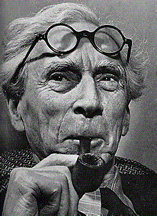
 ("The Study of Mathematics")
("The Study of Mathematics")
"Mathematics, rightly viewed, possesses not only truth, but supreme beauty--a beauty cold and austere, like that of sculpture, without appeal to any part of our weaker nature, without the gorgeous trappings of painting or music, yet sublimely pure, and capable of a stern perfection such as only the greatest art can show."
 And for a nice, sobering contrast (albeit non-contradictory) try:
And for a nice, sobering contrast (albeit non-contradictory) try:
"... mathematics is only the art of saying the same thing in different words."
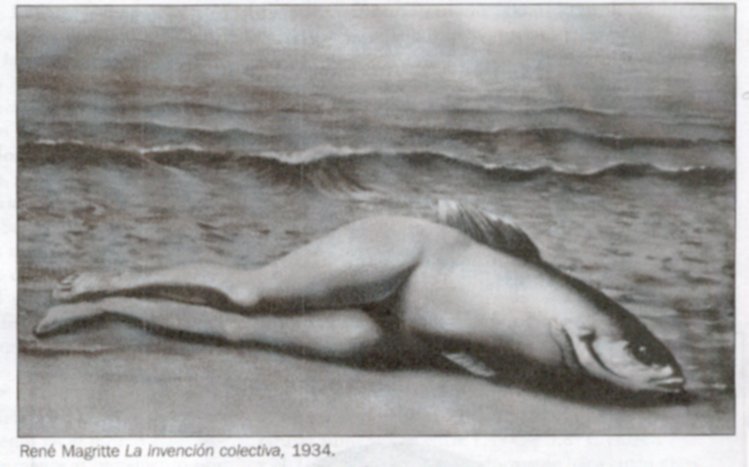
 "The secret of happiness is to face the fact that the world is horrible, horrible, horrible...." BERTRAND RUSSELL
"The secret of happiness is to face the fact that the world is horrible, horrible, horrible...." BERTRAND RUSSELL

 "all revolutions degenerate into governments"-Octavio Paz
"all revolutions degenerate into governments"-Octavio Paz
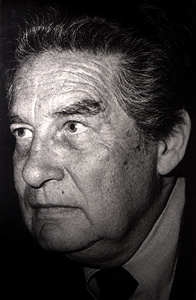
 A man's women folk, whatever their out ward show of respect for his merit and authority, always regard him secretly as an ass, and with something akin to pity, His most gaudy sayings and doings seldom deceive them; they see the actual man within, and know him for a shallow and pathetic fellow. In this fact, perhaps, lies one of the best proofs of feminine intelligence, or as the common phase makes it, feminine intuition. Menken.
A man's women folk, whatever their out ward show of respect for his merit and authority, always regard him secretly as an ass, and with something akin to pity, His most gaudy sayings and doings seldom deceive them; they see the actual man within, and know him for a shallow and pathetic fellow. In this fact, perhaps, lies one of the best proofs of feminine intelligence, or as the common phase makes it, feminine intuition. Menken.
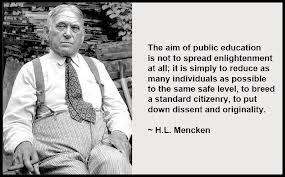
 “The whole aim of practical politics”, said H.L. Mencken, “is to keep the populace alarmed—and hence clamorous to be led to safety—by menacing it with an endless series of hobgoblins, all of them imaginary.” Mencken
“The whole aim of practical politics”, said H.L. Mencken, “is to keep the populace alarmed—and hence clamorous to be led to safety—by menacing it with an endless series of hobgoblins, all of them imaginary.” Mencken

 "My advice to you is get married: if you find a good wife you'll be happy; if not,you'll become a philosopher." - Socrates (470-399 B.C.)
"My advice to you is get married: if you find a good wife you'll be happy; if not,you'll become a philosopher." - Socrates (470-399 B.C.)

 The value of philosophy is, in fact, to be sought largely in its very uncertainty. The man who has no tincture of philosophy goes through life imprisoned in the prejudices derived from common sense, from the habitual beliefs of his age or his nation, and from convictions which have grown up in his mind without the co-operation or consent of his deliberate reason. To such a man the world tends to become definite, finite, obvious; common objects rouse no questions, and unfamiliar possibilities are contemptuously rejected. As soon as we begin to philosophize, on the contrary, we find... that even the most everyday things lead to problems to which only very incomplete answers can be given. Philosophy, though unable to tell us with certainty what is the true answer to the doubts it raises, is able to suggest many possibilities which enlarge our thoughts and free them from the tyranny of custom. Thus, while diminishing our feeling of certainty as to what things are, it greatly increases our knowledge as to what they may be; it removes the somewhat arrogant dogmatism of those who have never traveled into the region of liberating doubt, and it keeps alive our sense of wonder by showing familiar things in an unfamiliar aspect. RUSSELL
The value of philosophy is, in fact, to be sought largely in its very uncertainty. The man who has no tincture of philosophy goes through life imprisoned in the prejudices derived from common sense, from the habitual beliefs of his age or his nation, and from convictions which have grown up in his mind without the co-operation or consent of his deliberate reason. To such a man the world tends to become definite, finite, obvious; common objects rouse no questions, and unfamiliar possibilities are contemptuously rejected. As soon as we begin to philosophize, on the contrary, we find... that even the most everyday things lead to problems to which only very incomplete answers can be given. Philosophy, though unable to tell us with certainty what is the true answer to the doubts it raises, is able to suggest many possibilities which enlarge our thoughts and free them from the tyranny of custom. Thus, while diminishing our feeling of certainty as to what things are, it greatly increases our knowledge as to what they may be; it removes the somewhat arrogant dogmatism of those who have never traveled into the region of liberating doubt, and it keeps alive our sense of wonder by showing familiar things in an unfamiliar aspect. RUSSELL

 That the right use of reason is "that by which the most wholesome faith is begotten . . . is nourished, defended, and made strong" St. Thomas Aquinas.
That the right use of reason is "that by which the most wholesome faith is begotten . . . is nourished, defended, and made strong" St. Thomas Aquinas.
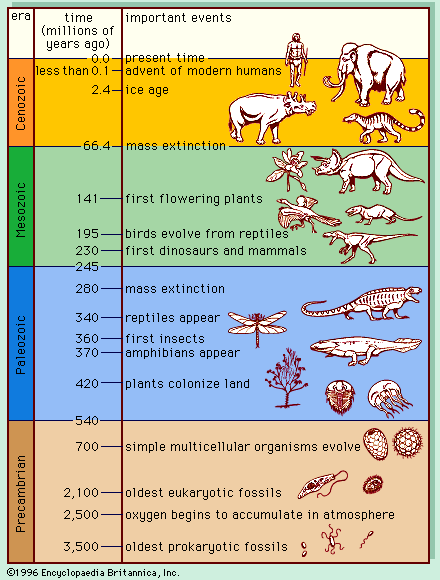
 Even if the open windows of science makes us shiver after the cosy indoor warmth of traditional humanizing myths, in the end the fresh air brings vigor, and the great spaces have a splendor of their own. Bertrand Russell.
Even if the open windows of science makes us shiver after the cosy indoor warmth of traditional humanizing myths, in the end the fresh air brings vigor, and the great spaces have a splendor of their own. Bertrand Russell.

 La economía es algo demasiado importante como para dejarla en manos de los economistas.
La economía es algo demasiado importante como para dejarla en manos de los economistas.
 "Not until the United States built its space-shuttle facilities at Cape Canaveral, Florida, did America see any structures more massive than the pyramids of Cholula and Teotihuacan" -- J. Weatherford, Indian Givers
"Not until the United States built its space-shuttle facilities at Cape Canaveral, Florida, did America see any structures more massive than the pyramids of Cholula and Teotihuacan" -- J. Weatherford, Indian Givers
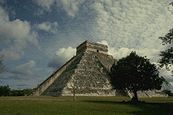
 Quite naturally, the argument here is: while Mexico, a country capitalizing on its geographic position and God-given resources, may be supplying the commodities in question,[Canibus] the United States is doing virtually nothing to attenuate demand. Madsen
Quite naturally, the argument here is: while Mexico, a country capitalizing on its geographic position and God-given resources, may be supplying the commodities in question,[Canibus] the United States is doing virtually nothing to attenuate demand. Madsen

 Many wealthy people escaped military service in the Civil War by paying $300 to a substitute. John D. Rockefeller, Andrew Carnegie, Philip Armour, Jay Gould, and James Mellon. Mellon's father had written to him that "a man may be a patriot without risking his own life or sacrificing his health. There are plenty to lives less valuable."-Zinn-The People's History
Many wealthy people escaped military service in the Civil War by paying $300 to a substitute. John D. Rockefeller, Andrew Carnegie, Philip Armour, Jay Gould, and James Mellon. Mellon's father had written to him that "a man may be a patriot without risking his own life or sacrificing his health. There are plenty to lives less valuable."-Zinn-The People's History

 In the case of those we seek to honor, their sacrifice was the ultimate a citizen may do for his or her country: their life. Out of a total of 3,427 medals granted by the U.S. Congress, 38 have been given to citizens of Latino ancestry, making Latinos the largest single ethnic group, in proportion to the number who served, to earn this prestigious award.
In the case of those we seek to honor, their sacrifice was the ultimate a citizen may do for his or her country: their life. Out of a total of 3,427 medals granted by the U.S. Congress, 38 have been given to citizens of Latino ancestry, making Latinos the largest single ethnic group, in proportion to the number who served, to earn this prestigious award.

 The just man is scourged, racked, thrown into prison, blinded in both eyes, and finally, when he has endured all ills, he is executed, and he recognises that one should be determined not to be just but to appear so.-Plato's Republic.-
The just man is scourged, racked, thrown into prison, blinded in both eyes, and finally, when he has endured all ills, he is executed, and he recognises that one should be determined not to be just but to appear so.-Plato's Republic.-
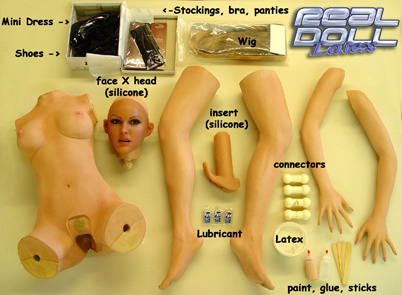
 "THE CANON OF MEDICINE", is the most famous single book in the history of medicine in both East and West.-Avicenna-
"THE CANON OF MEDICINE", is the most famous single book in the history of medicine in both East and West.-Avicenna-

 "CERTAIN LIVING CREATURES WHICH THE EYE CANNOT FOLLOW...PASS BY THE AIR THROUGH THE MOUTH AND NOSE INTO THE BODY, AND SET UP GRIEVOUS DISEASES.-Marcus Varro, 27 B.C.E.-
"CERTAIN LIVING CREATURES WHICH THE EYE CANNOT FOLLOW...PASS BY THE AIR THROUGH THE MOUTH AND NOSE INTO THE BODY, AND SET UP GRIEVOUS DISEASES.-Marcus Varro, 27 B.C.E.-
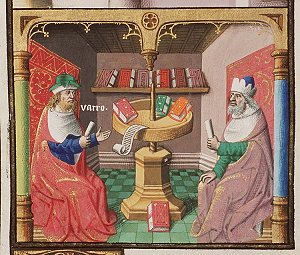
 Aryabhata, in 499 wrote the astronomy text Siddhanta which taught that the apparent rotation of the heavens was due to the axial rotation of the Earth. The work is written in 121 stanzas. It gives a quite remarkable view of the nature of the solar system.
Aryabhata, in 499 wrote the astronomy text Siddhanta which taught that the apparent rotation of the heavens was due to the axial rotation of the Earth. The work is written in 121 stanzas. It gives a quite remarkable view of the nature of the solar system.

 His point was that he could not support a government that endorsed slavery and waged an imperialist war against Mexico. His defense of the private, individual conscience against the expediency of the majority found expression in his most famous essay, "Civil Disobedience," which was first published in May 1849 under the title "Resistance to Civil Government." - Thoreau, Henry David-
His point was that he could not support a government that endorsed slavery and waged an imperialist war against Mexico. His defense of the private, individual conscience against the expediency of the majority found expression in his most famous essay, "Civil Disobedience," which was first published in May 1849 under the title "Resistance to Civil Government." - Thoreau, Henry David-

 The mass of men lead lives of quiet desperation. What is called resignation is confirmed desperation.
The mass of men lead lives of quiet desperation. What is called resignation is confirmed desperation.
1797 in the Marquis de Sade's text L'Histoire de Juliette: "Tracing the right of property back to its source, one infallibly arrives at usurpation. However, theft is only punished because it violates the right of property; but this right is itself nothing in origin but theft."[5]
 Carl Gustaf Jung, the psychiatrist, wrote of him that "We see in Paracelsus not only a pioneer in the domains of chemical medicine, but also in those of an empirical psychological healing science." 16th century.
Carl Gustaf Jung, the psychiatrist, wrote of him that "We see in Paracelsus not only a pioneer in the domains of chemical medicine, but also in those of an empirical psychological healing science." 16th century.

 Humans are most closely realted to the great apes (gorillas and chimpanzess) with whom we share approximately 98% of our genetic code or DNA.
Humans are most closely realted to the great apes (gorillas and chimpanzess) with whom we share approximately 98% of our genetic code or DNA.
 According to Locke, what we know is always properly understood as the relation between ideas, and he devoted much of the Essay to an extended argument that all of our ideas--simple or complex--are ultimately derived from experience. The consequence of this empiricist approach is that the knowledge of which we are capable is severely limited in its scope and certainty. Our knowledge of material substances, for example, depends heavily on the secondary qualities by reference to which we name them, while their real inner natures derive from the primary qualities of their insensible parts. Nevertheless, Locke held that we have no grounds for complaint about the limitations of our knowledge, since a proper application of our cognitive capacities is enough to guide our action in the practical conduct of life. (1690)
According to Locke, what we know is always properly understood as the relation between ideas, and he devoted much of the Essay to an extended argument that all of our ideas--simple or complex--are ultimately derived from experience. The consequence of this empiricist approach is that the knowledge of which we are capable is severely limited in its scope and certainty. Our knowledge of material substances, for example, depends heavily on the secondary qualities by reference to which we name them, while their real inner natures derive from the primary qualities of their insensible parts. Nevertheless, Locke held that we have no grounds for complaint about the limitations of our knowledge, since a proper application of our cognitive capacities is enough to guide our action in the practical conduct of life. (1690)

 a priori / a posteriori-- Distinction among judgments, propositions, ideas, arguments, or kinds of knowledge. In each case, the a priori is taken to be independent of experience, which the a posteriori presupposes. An a priori argument, then, is taken to reason deductively from abstract general premises, while an a posteriori argument relies upon specific information derived from sense perception. The necessary truth of an a priori proposition can be determined by reason alone, but the contingent truth of an a posteriori proposition can be discovered only by reference to some matter of fact. Thus, for example:
a priori / a posteriori-- Distinction among judgments, propositions, ideas, arguments, or kinds of knowledge. In each case, the a priori is taken to be independent of experience, which the a posteriori presupposes. An a priori argument, then, is taken to reason deductively from abstract general premises, while an a posteriori argument relies upon specific information derived from sense perception. The necessary truth of an a priori proposition can be determined by reason alone, but the contingent truth of an a posteriori proposition can be discovered only by reference to some matter of fact. Thus, for example:
"3 + 4 = 7." is known a priori.
"Chicago is on Lake Michigan." is known a posteriori.
Rationalists typically emphasize the importance of a priori ideas and arguments as the foundation of all knowledge. Kant held that synthetic a priori judgments are preconditions of experience and form the basis for mathematics and science.
Empiricists, on the other hand, usually hold that all a priori propositions are merely analytic, so that we must rely on a posteriori propositions for significant knowledge of the world. Kripke challenges even the identification of this distinction with that between the necessary and the contingent.
 rationalism.- Reliance on reason {Lat. ratio} as the only reliable source of human knowledge. More specifically, rationalism is the epistemological theory that significant knowledge of the world can best be achieved by a priori means. Prominent rationalists of the modern period include Descartes, Spinoza, and Leibniz.
rationalism.- Reliance on reason {Lat. ratio} as the only reliable source of human knowledge. More specifically, rationalism is the epistemological theory that significant knowledge of the world can best be achieved by a priori means. Prominent rationalists of the modern period include Descartes, Spinoza, and Leibniz.
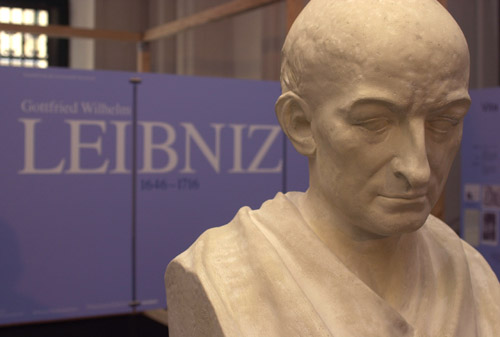
 empiricism.- Reliance on experience as the source of ideas and knowledge. More specifically, empiricism is the epistemological theory that genuine information about the world must be acquired by a posteriori means, so that nothing can be thought without first being sensed. Prominent modern empiricists include Bacon, Locke, Berkeley, Hume, and Mill.
empiricism.- Reliance on experience as the source of ideas and knowledge. More specifically, empiricism is the epistemological theory that genuine information about the world must be acquired by a posteriori means, so that nothing can be thought without first being sensed. Prominent modern empiricists include Bacon, Locke, Berkeley, Hume, and Mill.

 You have already grasped that Sisyphus is the aburd hero. He is,as much through his passions as through his torture. His scorn of the gods, his hatred of death, and his passion for life won him that unspeakable penalty in which the whole being is exerted toward accomplishing nothing. This is the price that must be paid for the passions of this earth. Nothing is told us about Sisyphus in the underworld. Myths are made for the imagination to breathe life into them. As for this myth, one sees merely the whole effort of a body straining to raise the huge stone, to roll it and push it up a slope a hundred times over; one sees the face screwed up, the cheek tight against the stone, the shoulder bracing the clay-covered mass, the foot wedging it, the fresh start with arms outstretched, the wholly human security of two earth-clotted hands. At the very end of his long effort measured by skyless space and time without depth, the purpose is achieved. Then Sisyphus watches the stone rush down in a few moments toward that lower world whence he will have to push it up again toward the summit. He goes back down to the plain. It is during that return, that pause, that Sisyphus interests me. A face that toils so close to stones is already stone itself! I see that man going back down with a heavy yet measured step toward the torment of which he will never know the end. That hour like a breathing-space which returns as surely as his suffering, that is the hour of consciousness. At each of those moments when he leaves the heights and gradually sinks toward the lairs of the gods, he is superior to his fate. He is stronger than his rock. Camu.
You have already grasped that Sisyphus is the aburd hero. He is,as much through his passions as through his torture. His scorn of the gods, his hatred of death, and his passion for life won him that unspeakable penalty in which the whole being is exerted toward accomplishing nothing. This is the price that must be paid for the passions of this earth. Nothing is told us about Sisyphus in the underworld. Myths are made for the imagination to breathe life into them. As for this myth, one sees merely the whole effort of a body straining to raise the huge stone, to roll it and push it up a slope a hundred times over; one sees the face screwed up, the cheek tight against the stone, the shoulder bracing the clay-covered mass, the foot wedging it, the fresh start with arms outstretched, the wholly human security of two earth-clotted hands. At the very end of his long effort measured by skyless space and time without depth, the purpose is achieved. Then Sisyphus watches the stone rush down in a few moments toward that lower world whence he will have to push it up again toward the summit. He goes back down to the plain. It is during that return, that pause, that Sisyphus interests me. A face that toils so close to stones is already stone itself! I see that man going back down with a heavy yet measured step toward the torment of which he will never know the end. That hour like a breathing-space which returns as surely as his suffering, that is the hour of consciousness. At each of those moments when he leaves the heights and gradually sinks toward the lairs of the gods, he is superior to his fate. He is stronger than his rock. Camu.

 Anaximander (d. 547 BCE)-- Presocratic philosopher. Examination of fossil evidence persuaded Anaximander that living beings develop from simpler to more complex forms over time.[Pre-Darwin?]
Anaximander (d. 547 BCE)-- Presocratic philosopher. Examination of fossil evidence persuaded Anaximander that living beings develop from simpler to more complex forms over time.[Pre-Darwin?]
You see things, and you say 'Why?' But I dream things that never were, and I say 'Why not? George Bernard Shaw

 "There is a time when the operation of the machine becomes so odious, makes you so sick at heart, that you can't take part; and you've got to put your bodies upon the gears and upon the wheels, upon the levers, upon all the apparatus and you've got to make it stop." Savio; Berkley Freedom of Speech.
"There is a time when the operation of the machine becomes so odious, makes you so sick at heart, that you can't take part; and you've got to put your bodies upon the gears and upon the wheels, upon the levers, upon all the apparatus and you've got to make it stop." Savio; Berkley Freedom of Speech.
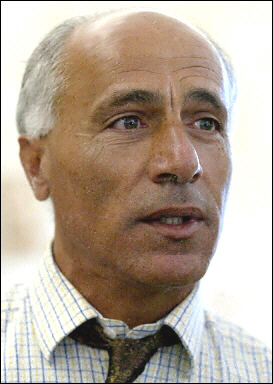
Vanunu

 AND APHORISMS
AND APHORISMS



![]()


















![]() "THE CANON OF MEDICINE", is the most famous single book in the history of medicine in both East and West.-Avicenna-
"THE CANON OF MEDICINE", is the most famous single book in the history of medicine in both East and West.-Avicenna-
![]() "CERTAIN LIVING CREATURES WHICH THE EYE CANNOT FOLLOW...PASS BY THE AIR THROUGH THE MOUTH AND NOSE INTO THE BODY, AND SET UP GRIEVOUS DISEASES.-Marcus Varro, 27 B.C.E.-
"CERTAIN LIVING CREATURES WHICH THE EYE CANNOT FOLLOW...PASS BY THE AIR THROUGH THE MOUTH AND NOSE INTO THE BODY, AND SET UP GRIEVOUS DISEASES.-Marcus Varro, 27 B.C.E.-
![]() Aryabhata, in 499 wrote the astronomy text Siddhanta which taught that the apparent rotation of the heavens was due to the axial rotation of the Earth. The work is written in 121 stanzas. It gives a quite remarkable view of the nature of the solar system.
Aryabhata, in 499 wrote the astronomy text Siddhanta which taught that the apparent rotation of the heavens was due to the axial rotation of the Earth. The work is written in 121 stanzas. It gives a quite remarkable view of the nature of the solar system.
![]() His point was that he could not support a government that endorsed slavery and waged an imperialist war against Mexico. His defense of the private, individual conscience against the expediency of the majority found expression in his most famous essay, "Civil Disobedience," which was first published in May 1849 under the title "Resistance to Civil Government." - Thoreau, Henry David-
His point was that he could not support a government that endorsed slavery and waged an imperialist war against Mexico. His defense of the private, individual conscience against the expediency of the majority found expression in his most famous essay, "Civil Disobedience," which was first published in May 1849 under the title "Resistance to Civil Government." - Thoreau, Henry David-
![]() The mass of men lead lives of quiet desperation. What is called resignation is confirmed desperation.
The mass of men lead lives of quiet desperation. What is called resignation is confirmed desperation.![]() Carl Gustaf Jung, the psychiatrist, wrote of him that "We see in Paracelsus not only a pioneer in the domains of chemical medicine, but also in those of an empirical psychological healing science." 16th century.
Carl Gustaf Jung, the psychiatrist, wrote of him that "We see in Paracelsus not only a pioneer in the domains of chemical medicine, but also in those of an empirical psychological healing science." 16th century.

![]() According to Locke, what we know is always properly understood as the relation between ideas, and he devoted much of the Essay to an extended argument that all of our ideas--simple or complex--are ultimately derived from experience. The consequence of this empiricist approach is that the knowledge of which we are capable is severely limited in its scope and certainty. Our knowledge of material substances, for example, depends heavily on the secondary qualities by reference to which we name them, while their real inner natures derive from the primary qualities of their insensible parts. Nevertheless, Locke held that we have no grounds for complaint about the limitations of our knowledge, since a proper application of our cognitive capacities is enough to guide our action in the practical conduct of life. (1690)
According to Locke, what we know is always properly understood as the relation between ideas, and he devoted much of the Essay to an extended argument that all of our ideas--simple or complex--are ultimately derived from experience. The consequence of this empiricist approach is that the knowledge of which we are capable is severely limited in its scope and certainty. Our knowledge of material substances, for example, depends heavily on the secondary qualities by reference to which we name them, while their real inner natures derive from the primary qualities of their insensible parts. Nevertheless, Locke held that we have no grounds for complaint about the limitations of our knowledge, since a proper application of our cognitive capacities is enough to guide our action in the practical conduct of life. (1690)
![]() rationalism.- Reliance on reason {Lat. ratio} as the only reliable source of human knowledge. More specifically, rationalism is the epistemological theory that significant knowledge of the world can best be achieved by a priori means. Prominent rationalists of the modern period include Descartes, Spinoza, and Leibniz.
rationalism.- Reliance on reason {Lat. ratio} as the only reliable source of human knowledge. More specifically, rationalism is the epistemological theory that significant knowledge of the world can best be achieved by a priori means. Prominent rationalists of the modern period include Descartes, Spinoza, and Leibniz.
![]() empiricism.- Reliance on experience as the source of ideas and knowledge. More specifically, empiricism is the epistemological theory that genuine information about the world must be acquired by a posteriori means, so that nothing can be thought without first being sensed. Prominent modern empiricists include Bacon, Locke, Berkeley, Hume, and Mill.
empiricism.- Reliance on experience as the source of ideas and knowledge. More specifically, empiricism is the epistemological theory that genuine information about the world must be acquired by a posteriori means, so that nothing can be thought without first being sensed. Prominent modern empiricists include Bacon, Locke, Berkeley, Hume, and Mill.
![]() You have already grasped that Sisyphus is the aburd hero. He is,as much through his passions as through his torture. His scorn of the gods, his hatred of death, and his passion for life won him that unspeakable penalty in which the whole being is exerted toward accomplishing nothing. This is the price that must be paid for the passions of this earth. Nothing is told us about Sisyphus in the underworld. Myths are made for the imagination to breathe life into them. As for this myth, one sees merely the whole effort of a body straining to raise the huge stone, to roll it and push it up a slope a hundred times over; one sees the face screwed up, the cheek tight against the stone, the shoulder bracing the clay-covered mass, the foot wedging it, the fresh start with arms outstretched, the wholly human security of two earth-clotted hands. At the very end of his long effort measured by skyless space and time without depth, the purpose is achieved. Then Sisyphus watches the stone rush down in a few moments toward that lower world whence he will have to push it up again toward the summit. He goes back down to the plain. It is during that return, that pause, that Sisyphus interests me. A face that toils so close to stones is already stone itself! I see that man going back down with a heavy yet measured step toward the torment of which he will never know the end. That hour like a breathing-space which returns as surely as his suffering, that is the hour of consciousness. At each of those moments when he leaves the heights and gradually sinks toward the lairs of the gods, he is superior to his fate. He is stronger than his rock. Camu.
You have already grasped that Sisyphus is the aburd hero. He is,as much through his passions as through his torture. His scorn of the gods, his hatred of death, and his passion for life won him that unspeakable penalty in which the whole being is exerted toward accomplishing nothing. This is the price that must be paid for the passions of this earth. Nothing is told us about Sisyphus in the underworld. Myths are made for the imagination to breathe life into them. As for this myth, one sees merely the whole effort of a body straining to raise the huge stone, to roll it and push it up a slope a hundred times over; one sees the face screwed up, the cheek tight against the stone, the shoulder bracing the clay-covered mass, the foot wedging it, the fresh start with arms outstretched, the wholly human security of two earth-clotted hands. At the very end of his long effort measured by skyless space and time without depth, the purpose is achieved. Then Sisyphus watches the stone rush down in a few moments toward that lower world whence he will have to push it up again toward the summit. He goes back down to the plain. It is during that return, that pause, that Sisyphus interests me. A face that toils so close to stones is already stone itself! I see that man going back down with a heavy yet measured step toward the torment of which he will never know the end. That hour like a breathing-space which returns as surely as his suffering, that is the hour of consciousness. At each of those moments when he leaves the heights and gradually sinks toward the lairs of the gods, he is superior to his fate. He is stronger than his rock. Camu.
![]() Anaximander (d. 547 BCE)-- Presocratic philosopher. Examination of fossil evidence persuaded Anaximander that living beings develop from simpler to more complex forms over time.[Pre-Darwin?]
Anaximander (d. 547 BCE)-- Presocratic philosopher. Examination of fossil evidence persuaded Anaximander that living beings develop from simpler to more complex forms over time.[Pre-Darwin?]

